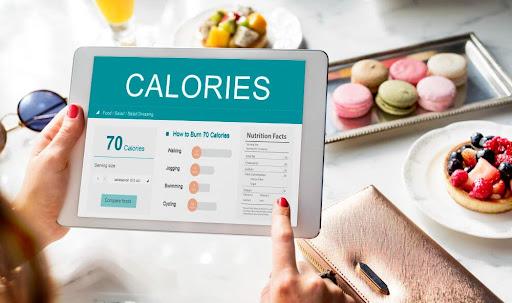

Are you wondering how you can quickly and correctly gain lean muscle mass? Start by focusing on your nutrition. Besides hitting the gym, you need to feed on the right foods to achieve muscle gain. If you reduce your calorie intake, you will lose your body fat and get lean.
Here is a comprehensive guide on how to reduce your calories.
What Are Calories and Why We Need Them
To understand calories and the role they play in your body, you need to understand the nutrients needed for the body to stay healthy. Your body needs a combination of carbohydrates, protein, fats, minerals, vitamins, and water to stay healthy. Of these nutrient groups, protein, carbohydrates, and fats provide your body with calories.
A calorie is a unit of measurement- each gram of protein or carbohydrate yields about 4 calories, while a gram of fat would yield 9 calories. This unit of measurement also denotes the amount of energy your body releases as it breaks down food. The higher the number of calories in the food or drink, the more energy it can yield to your body.
While calories are a normal part of the human diet, people do not always consume the right amounts. Consuming too little or too many calories can affect your health, and come between your bodybuilding goals. When you consume more calories than the body needs, it will store it as fat. While many people think that eating a fat-free diet may be the secret to avoiding excess calories, this is far from the truth. Even a fat-free diet can lead to the accumulation of body fat.
Determining Your Calorie Needs
Different people need different amounts of calories each day. This is understandable, as often, people have different metabolic rates and lifestyles that are likely to determine how many calories they need in a day. Your recommended daily calorie intake depends on several factors like sex and weight.
According to the Dietary Guidelines for Americans, men need approximately 2000 to 3000 calories daily, while women need between 1600 and 2000 calories daily. It should follow that the less active a person is, the fewer calories they need. These guidelines help you understand the range of calories you would ideally require in a day based on the abovementioned factors.
For bodybuilders, the number of calories needed may depend on the sex. Male bodybuilders will need approximately 3800 calories daily in the bulking phase and around 2400 in the cutting phase. On the other hand, women bodybuilders will need approximately 3200 calories during the bulking phase and 1200 in the cutting phase.
Of the recommended dietary intake of calories, 45 – 65% of the calories should come from carbohydrates, 20 – 30% from fats, and 10 – 35% from protein. Remember, this is just the acceptable macronutrient range (AMDR) within the Dietary Guidelines for Americans.

Why Fat Gets Attention in the Fight against Calories
Fat garners attention for different reasons. For starters, trans and saturated fats can raise bad cholesterol levels. High cholesterol levels are a leading risk factor for heart disease.
Furthermore, fatty foods such as potato chips and bacon may have fewer minerals and vitamins and higher calories than foods with lower fat levels. Note that dairy products and red meats have saturated fat. However, without worrying, you can enjoy fish, lean meat, tofu, lentils, low or fat-free yogurt, and cottage cheese, as these are low-fat protein options.
Fat also has twice the caloric content of proteins and carbohydrates. As highlighted above, a gram of fat has approximately twice the amount of calories found in the same measurement of protein or carbohydrate.
However, it is crucial to understand that weight loss and body-building takes more than limiting high-fat foods. To lose weight effectively and gain muscle, you should watch your calorie intake so that you are taking a balanced diet. Avoid trading off fat with highly processed foods rich in carbohydrates. While this may look like a good idea, some foods labeled “low fat” or “fat-free” are unhealthy, as they have added sugars.
Losing fat will require you to create a calorie deficit, something you can achieve by consuming fewer calories and less fat and incorporating healthy practices such as exercising.
Why Cutting Calories Helps Lose Weight
As highlighted above, cutting calories creates a calorie deficit in the body. Therefore, you will burn more calories through your workouts and metabolism than you consume. The result is that your body cannot support all of its tissues, which leads to tissue mass loss. Muscle and fat mass are the main tissues you lose in such a scenario.
One pound of body weight contains 3500 calories. Therefore, many dieting strategies aim to cut this amount of calories or more in a week’s food intake to reduce the loss of one pound or more per week. You should ideally keep your calorie reduction to less than 1400 daily. Alternatively, discuss your calorie reduction target with a doctor for the best results.
Depending on several factors, including your digestion and hormones, you may lose weight faster or slower than this mathematical equation dictates.
As you set out to lose weight and gain muscle, remember not to cut out too many calories from your diet, as this may have an adverse effect on your body. Once you cut on calories, your body naturally fights to maintain or preserve your weight. Your body may look like it is fighting you, but this is a physiological defense that the human body uses to slow down weight loss. This survival mechanism has helped humans survive adverse situations such as famine and starvation.
If you cut out too many calories from your diet, especially at the start of your weight loss attempt, these evolutionary mechanisms may come into play. Hormones such as ghrelin may rise in the body, which means you will feel hungrier and look for food.
If you create an extreme calorie deficit, you may also experience lower energy levels, and this may work against you, as you will not move as much. You feel fatigued, and this causes a lack of activities. By the end of the day, you may burn fewer calories than you used to before going on a diet, which slows down your weight loss.
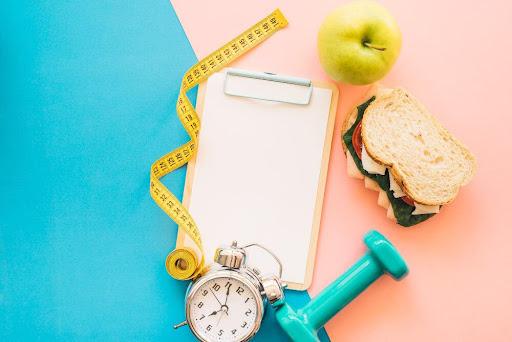
How to Reduce Calorie Intake
Cutting calories does not mean weighing your food on a scale or counting the calories you ingest daily. Here are some simple ways to ensure you consume fewer calories on your body-building journey.
Reduce Portion Sizes
One easy way to create a calorie deficit is to reduce portion sizes. If you want to use this strategy, start by cutting just small bits of food at a time and adjust to see the results over time. A good way to start would be to use a smaller dinner plate with a smaller diameter. Alternatively, you can buy a portion-control dish.
You can also measure your food by hand. For example, you can take a fist full of starches and fruits while you should take as many vegetables as you can fit in two hands. You should also take a palm-sized amount of meat and a thumb-sized amount of fat.
Swap Foods
You do not necessarily have to eliminate high-calorie foods that you love from your diet. However, you can consume them in moderation and as part of your diet and lifestyle to lose weight and gain muscle. A good way to incorporate these into your diet would be to make them an occasional treat instead of making them a daily part of your meal plan.
You can swap these foods for other tasty and satisfying alternatives with more nutrients and fewer calories. For example, you can replace the butter and oil in baked goods with applesauce or sour cream with plain or low-fat Greek yogurt.
Limit the Intake of High-Calorie Beverages
Many people do not realize that their overconsumption of calories comes from beverages. Sugary beverages, especially, do not provide any real nutritional value for the body, but they increase the number of calories ingested.
Consuming soft drinks is associated with weight gain. Even if you are physically active, counteracting the effect of calories gained from sugary drinks by exercising may not be possible. Therefore, your best bet for weight loss and muscle maintenance is to limit the intake of beverages with added sugar.
Take more Protein, Fiber, and Water
Protein, fiber, and water do a good job of keeping you satiated. You can combine your proteins with high-fiber carbohydrates to help stabilize your blood sugars and keep your energy levels up during your body-building journey. The protein in the diet will support muscle mass growth and maintenance, impacting your metabolism.
If you have more muscles, your metabolic rate increases. However, you should preserve your muscle mass during weight loss and lose fats instead, which is why it is advisable to take protein. Remember, proteins and fiber are more likely to make you feel satiated than other food groups. Try to meet and exceed USDA’s recommended daily allowance for fiber, as most Americans do not meet this recommendation.
Food Preparation
Many people underestimate the power of at-home food preparation. When you cook at home, you have more control over what goes into your meals. However, in restaurants and fast-food joints, you have no control over how the food is prepared, and in most cases, food from these places has more calories than those prepared at home.
Some low-calorie food preparation methods include baking and breading over sautéing, grilling, and steaming. You can also utilize non-stick pans in case you have to cook or sauté food.
Conclusion
One of the most effective ways to build and maintain muscle is to reduce your calorie intake. As you set out on your bodybuilding journey, ensure you focus on your nutrition. A great place to start with reducing your calorie intake is food prepping. Other ways include increasing the intake of carbohydrates, fiber, and protein and limiting the intake of high-calorie drinks while consuming more water.






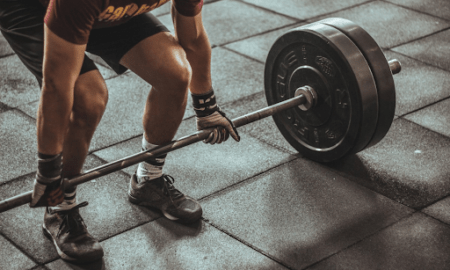













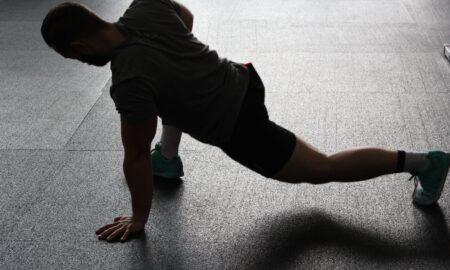
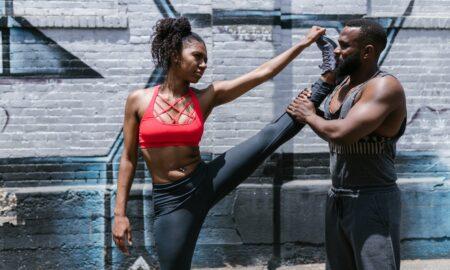
You must be logged in to post a comment Login